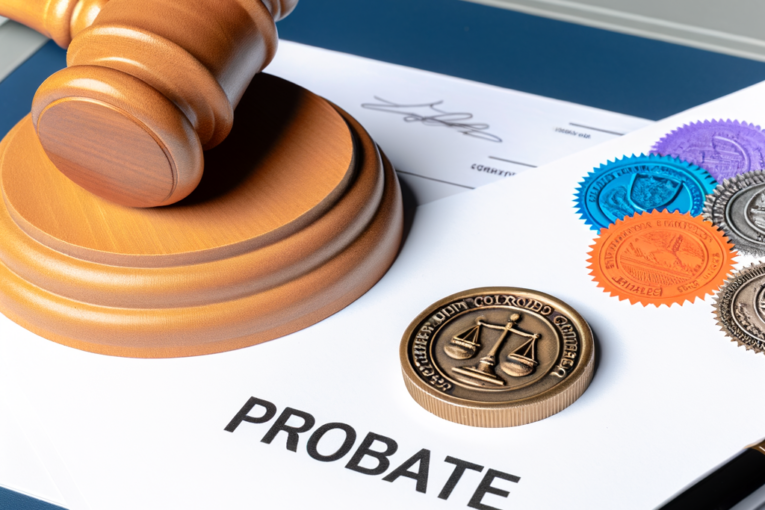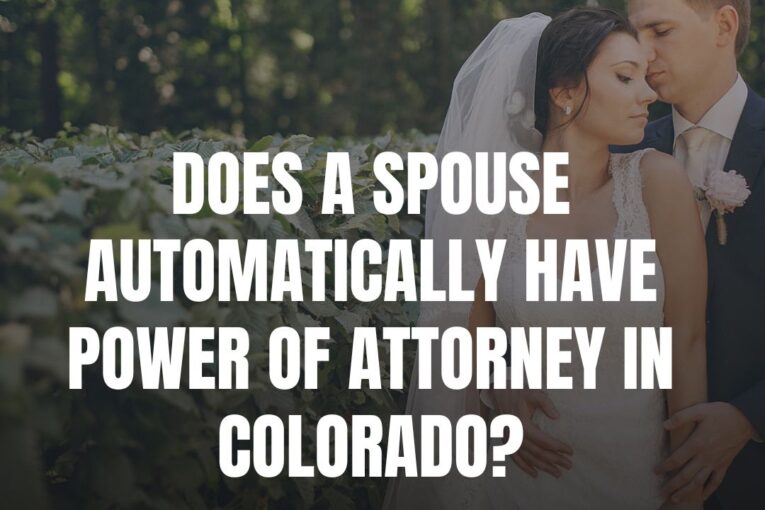Introduction
Business litigation refers to the process of resolving a legal dispute between two or more business entities through the court system. This can involve claims related to breach of contract, employment issues, intellectual property rights, shareholder disputes, fraud, misrepresentation, and more. With so much at stake, business litigation has become an increasingly common and costly endeavor for companies of all sizes. This guide provides an overview of the key aspects of business litigation and aims to help businesses understand the common types of business litigation, the key steps involved, and how to best prepare for potential legal disputes.
Whether you are an established enterprise or a startup, understanding the litigation process can help safeguard your interests when conflicts inevitably emerge. By learning the fundamentals of business litigation and working with an experienced business litigation attorney, you can maximize your chances of a favorable outcome. Read on to learn more about successfully navigating the complex world of business litigation.
Understanding Business Litigation
What is business litigation?
In its simplest form, business litigation refers to the process of resolving a legal dispute between two or more business entities through the court system rather than alternative dispute resolution methods. It involves claims regarding a business dispute or disagreement over a business-related issue.
Business litigation can arise in many contexts, but common triggers include breach of contract claims, employment disputes, disagreements between shareholders or business partners, intellectual property infringement, and allegations of fraud or misrepresentation in a business setting. The stakes are often high, with outcomes impacting profitability, competitive advantage, and even business survival.
Key parties involved in business litigation
While the specific parties vary case-by-case, business litigation typically involves:
- Plaintiff: The individual, company, or entity filing the lawsuit and claiming harm.
- Defendant: The individual, company, or entity being sued and defending against the claim.
- Attorneys: The business litigation lawyers represent the plaintiff and defendant. Experienced litigation attorneys handle filing motions, discovery, settlement negotiations, and trials.
- Judge: The presiding judge oversees pre-trial procedures, hearings, and the trial itself.
- Jury: If requested, a jury may decide the final verdict after considering evidence and arguments.
Scope of business litigation cases
Business litigation encompasses a wide variety of potential legal disputes and claims between businesses, including:
- Breach of contract: allegations of contract breach, non-performance of duties, etc.
- Shareholder disputes: disagreements among shareholders in a corporation
- Intellectual property disputes: trademark, copyright, and patent infringement claims
- Employment issues: claims of discrimination, wrongful termination, etc.
- Fraud and misrepresentation
- Business torts: unfair competition, defamation, etc.
- Real estate disputes: landlord/tenant conflicts, property damage
- Partnership conflicts: issues like breach of fiduciary duty
Benefits of Hiring a Business Litigation Attorney
Given the high stakes, specialized laws, and complexity involved, partnering with an experienced business litigation lawyer offers many benefits, including:
- In-depth knowledge of business law and litigation strategies.
- Assistance with evidence gathering and document review
- Guidance on litigation tactics and building the strongest case
- Expert pre-trial preparation and motion filing
- Skilled negotiation and settlement abilities.
- Courtroom experience is needed to argue persuasively before judges and juries.
- Objectivity and insights you often can’t have when personally involved
Steps involved in the business litigation process
While each case is unique, business litigation typically proceeds through the following key phases:
- Investigation: The plaintiff gathers facts and evidence to assess the merits of potential legal claims.
- Filing the complaint: The plaintiff files a civil complaint outlining alleged wrongdoings.
- Discovery: extensive information exchange between the parties, including depositions.
- Pre-trial motions are motions filed on legal issues and the admissibility of evidence.
- Settlement negotiations: discussions to reach a compromise and avoid trial
- Trial: If there is no settlement, a trial is held where evidence is presented and witnesses testify.
- Verdict: The judge or jury reaches a verdict after considering the evidence and arguments.
- Post-trial motions: Parties may file motions challenging the verdict.
- Appeal: The losing party can appeal the verdict to a higher court.
- Damages/remedies awarded: The court awards damages or equitable remedies based on the verdict.
Types of Business Litigation
Various types of legal claims arise in business litigation. Some of the most common include:
Breach of Contract
Breach of contract is one of the most prevalent business litigation disputes. It occurs when one party fails to perform according to a binding contract.
1. Definition and elements
To prove a breach of contract, there must be:
- A valid contract
- Plaintiff performed contractual obligations
- The defendant failed to fulfill his duties under the contract.
- Plaintiff suffered damages from the breach.
2. Common types of breach of contract cases
Common situations include:
- One party didn’t pay for goods or services.
- Failure to deliver goods as specified
- Violation of non-compete, non-disclosure, or other clauses
- Unjustified contract termination
- Refusal to honor a purchase order or invoice
3. Legal remedies and defenses
Remedies for breach of contract can include:
- Monetary damages
- Specific performance orders
- Rescission of the contract
- Injunctions
Defenses may argue the contract is void, performance was impossible, plaintiff didn’t uphold duties, lack of consideration, misrepresentation, or that no breach occurred.
Employment Disputes
Many kinds of employment law disputes lead to litigation, including:
1. Types of employment disputes
- Wrongful termination: firing without proper cause or procedure.
- Discrimination: adverse action based on protected characteristics like race, gender, or disability.
- Harassment: unlawful intimidation, bullying, or hostility in the workplace.
- Whistleblower retaliation: punishing employees who report misconduct.
- Wage disputes: denial of wages earned, misclassifying employees, failure to pay overtime
2. Laws and regulations governing employment disputes
Key laws include Title VII, ADEA, ADA, FLSA, OSHA, NLRB rulings, state laws, and employment contracts.
Intellectual Property Disputes
Intellectual property disputes are prevalent in technology, media, and other innovative industries.
1. Overview of intellectual property in business litigation
IP disputes involve:
- Copyright: Protects original works like books, photos, movies, and software code.
- Trademarks: protect brand names, logos, slogans, and designs.
- Patents protect inventions, formulas, and processes.
- Trade secrets: protect confidential business information and data.
2. Resolving intellectual property disputes
IP lawsuits seek damages and injunctions against unauthorized use. Strong documentation of IP ownership is key. Settlements to license disputed IP are common resolutions.
Shareholder Disputes
Disagreements between shareholders or allegations of misconduct by corporate officers can prompt litigation.
1. Common issues in shareholder disputes
- Breach of fiduciary duty
- Denial of access to records
- Mismanagement of the corporation
- Misappropriation of assets
2. Breach of fiduciary duty claims
Directors and officers have fiduciary duties to the company and shareholders. Breach of fiduciary duty lawsuits allege violations of these duties.
3. Remedies and dispute resolution for shareholder disputes
- Damages
- Removal of directors and officers
- Dissolution of the corporation
- Buyback of shares
Mediation can be an effective recourse before resorting to court.
Fraud and Misrepresentation
Fraud arises when one party deliberately deceives or misleads another for unlawful gain.
1. Understanding business fraud and misrepresentation
Types of fraudulent business activities include:
- False advertising
- Misstating financial data
- Concealing defects
- Abusing expense accounts
2. Elements and strategies for pursuing fraud claims
Proving fraud requires showing:
- Intentional false statements
- Plaintiff relied on statements
- Resulted in injury or losses
This requires extensive documentation and discovery.
3. Defenses against fraud allegations
- Lack of evidence proving intent to deceive
- Plaintiff didn’t rely on or understand statements
- No damages were incurred.
Challenging the validity of the plaintiff’s claims is key.
Class Action Lawsuits
Class action lawsuits allow many plaintiffs to file a single suit against the same defendant.
1. Definition and characteristics of class action lawsuits
- Brought on behalf of a group with common injuries
- More efficient than hundreds of separate claims
- The same actions must have a similar impact on all plaintiffs.
2. Examples of business-related class actions
- Consumers for defective products
- Employees in employment disputes
- Shareholders for securities fraud
3. Process and challenges in class action litigation
Plaintiffs must get class certification to proceed. Defendants often argue that individual issues outweigh common ones. Settlements are common. Lawyers work on contingency fees.
Preparing for Business Litigation
Proper preparation and policies can help minimize the risk of litigation and strengthen your position if a lawsuit occurs. Useful steps include:
Steps businesses can take to minimize the risk of litigation
- Use clear, detailed contracts.
- Implement strong internal controls and security measures.
- Adhere to regulations and safety procedures.
- Avoid unfair business practices.
- Maintain compliant operations and accounting.
- Train managers on employment laws and diversity.
- Foster open communication and quickly address disputes.
Importance of maintaining proper documentation
- Keep detailed records that support your position.
- Retain all contracts, emails, meeting notes, invoices, etc.
- Document intellectual property ownership.
- Record disciplinary actions and performance issues.
Evaluating alternative dispute resolution methods
Consider alternatives like negotiation, mediation, and arbitration before litigation. These options are usually quicker, cheaper, and more private.
Conclusion
Business litigation can be challenging and high-stakes. Understanding the common types of commercial disputes, key phases of litigation, and smart preparation strategies allows companies to better protect their interests. During any legal conflict or claim, partnering with an experienced business litigation attorney provides the insights and counsel needed to efficiently resolve disputes and emerge in the strongest possible position.
Frequently Asked Questions
A business litigation attorney handles all aspects of the litigation process on behalf of a plaintiff or defendant. Key responsibilities include strategizing, filing motions, conducting discovery, negotiating settlements, arguing before the court, and drafting pleadings and legal documents. Their role is to advocate zealously for their client throughout the dispute.
The length of business litigation can vary substantially, depending on the complexity of the case. Relatively simple contract disputes may resolve within 1-2 years, while extensive cases with substantial discovery needs or appeals can last 3-5 years. Cases involving intellectual property claims often fall on the longer end. Prompt resolution depends on efficient cooperation from both parties.
Litigation costs hinge on the scope and complexity of the case. Smaller contract disputes may cost $50,000 to $100,000. Larger cases with extensive discovery can cost hundreds of thousands to millions in legal fees for each party. Contingency fee arrangements with attorneys may reduce upfront costs.
Yes, many business litigation cases result in an out-of-court settlement before trial. Through private negotiation and mediation, parties can reach a mutually satisfactory resolution faster and cheaper than a trial. Settlements allow both sides to avoid risks and end disputes confidentially.
Key factors include the lawyer’s litigation track record, experience with cases similar to yours, discovery skills, negotiation abilities, courtroom expertise, resources to handle the case, and cost structure. Also consider the attorney’s communication style and responsive support.
Yes, by reaching a favorable settlement through negotiation and mediation before trial commences. Even during pre-trial phases, it’s possible to win dismissal, summary judgment, or a beneficial ruling through motions and hearings if the law and evidence strongly favor your position.
Popular alternatives to litigation include direct negotiation between the parties, mediation involving a neutral third-party moderator, and arbitration through private dispute resolution forums. These options are typically faster, cheaper, and more private.
The timeline varies dramatically based on the complexity of the case and the procedures used. Simple cases may resolve in under a year; very complex ones can take over 5 years through appeals. However, most business litigation settles in 1-3 years through mutual negotiation. Swift cooperation and preparation accelerate resolution.
Relevant documentation, communications, transaction records, medical reports, expert analysis, financial records, third-party accounts, and any materials related to the allegations should be gathered. Photographic evidence, video, and testimony may also be useful. All evidence must be properly collected and documented.
Yes, in most cases, business operations can continue throughout the litigation process unless the court specifically imposes restrictions such as asset restraints or injunctions. However, executives may need to devote substantial time to depositions, discovery, and hearings.





